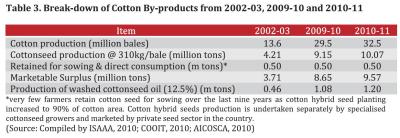Written by Steve Savage

Some of the world’s best coffee comes from the tropical highlands of Central and South America. Recently these regions have experienced heavier rainfall. This is probably due to climate change, but in any case it fosters severe epidemics of the Coffee Leaf Rust pathogen, Hemileia vastatrix. This disease has a long history of disrupting coffee production around the world. One reason the English drink tea is that the Ceylonese and Javan coffee plantations which once supplied them were devastated by this same fungus in the late 1800s. Coffee production was moved to the Americas (among other places) and it wasn’t until the 1970s that the rust pathogen made its way to the New World. For the next several decades it remained a manageable disease in those areas, but in recent seasons, the disease has been severely affecting yields. Continue reading “Saving coffee from a serious plant disease”





 Most of the time scientists can rely on publications that go through the careful critical review by other scientists. But sometimes papers get rushed through to publication, and there can be hasty, even harmful decisions made by journal editors.
Most of the time scientists can rely on publications that go through the careful critical review by other scientists. But sometimes papers get rushed through to publication, and there can be hasty, even harmful decisions made by journal editors.


